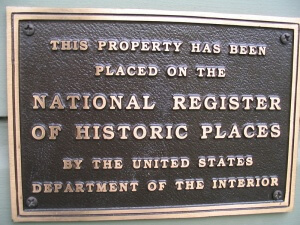National Park Service Considers Naming LGBTQ Locations as Historic Sites
November 1st, 2016

Marking significant places in LGBTQ history for preservation would help show a more inclusive snapshot of our nation’s past.
The National Park Service released a study recently on National Coming Out Day that surveys historic sites in the movement for lesbian, gay, bisexual, transgender, and queer rights for potential preservation and protections. This report marks the first step in potentially recognizing significant sites in the history of LGBTQ rights in the National Historic Register. The list of locations in this study includes private residences, hotels, bars, government agencies, hospitals, parks, and community centers that have been important to the LGBTQ movement. There have been several other studies performed by the National Park Service on the history of women, Latinos, Asian Americans and Pacific Islanders in an effort to shed light on neglected aspects of American history. This decision to appoint new locations in the National Historic Registers marks an important decisions with several significant ramifications that individuals must understand about the role of historic sites.
Relevant History Regarding the National Registry
Originating in 1966, the National Register of Historic Places has grown from simple legislative origins to include more than 80,000 individually listed locations. For a property to be eligible for the National Register, the location must meet one of the four National Register’s main criteria.
Effect of Being Listed Under Federal Law as a National Historic Site
There are several distinct advantages to being placed on the National Historic Register, which include:
- Grant Eligibility: Being listed in the National Historic Register makes property eligible to be considered for federal grants in aid for historic preservation.
- Mining Permits: If a property listed on the National Historic Register contain surface coal resources, considerations of the property’s historic value affect determinations on the issuance of mining permits.
- Protection: The National Historic Register is used by the federal government, state governments, local governments, private groups, and citizens to identify cultural resources and to indicate what properties should be considered for protection from destruction or impairment.
- Taxes: If a property is listed in the National Historic Register, certain provisions of the Tax Reform Act of 1976, the Revenue Act of 1978, and the Tax Treatment Extension Act of 1980 may apply. These regulations encourage the preservation of historic sites by allowing favorable tax treatment for rehabilitation and discourage destruction of these sites. Sites on the National Historic Register may also benefit from the investment tax credit provision of the Revenue Act of 1978.
If a location is named as a national historic site, however, this property is not prohibited under either federal law or regulation from any action which may be taken by the property owner.
Stay Informed About LGBTQ Issues
At Universal Life Church, we take great efforts to remain aware of current events involving LGBTQ rights and advancements. On our blog, we aim to inform readers about how certain laws apply to these situations. We understand that many issues in this field in this field are both complicated and constantly evolving. Make sure to check our site frequently to stay up to date with the most recent developments regarding the most recent legal changes regarding LGBTQ rights.
(image courtesy of VanTucky)


